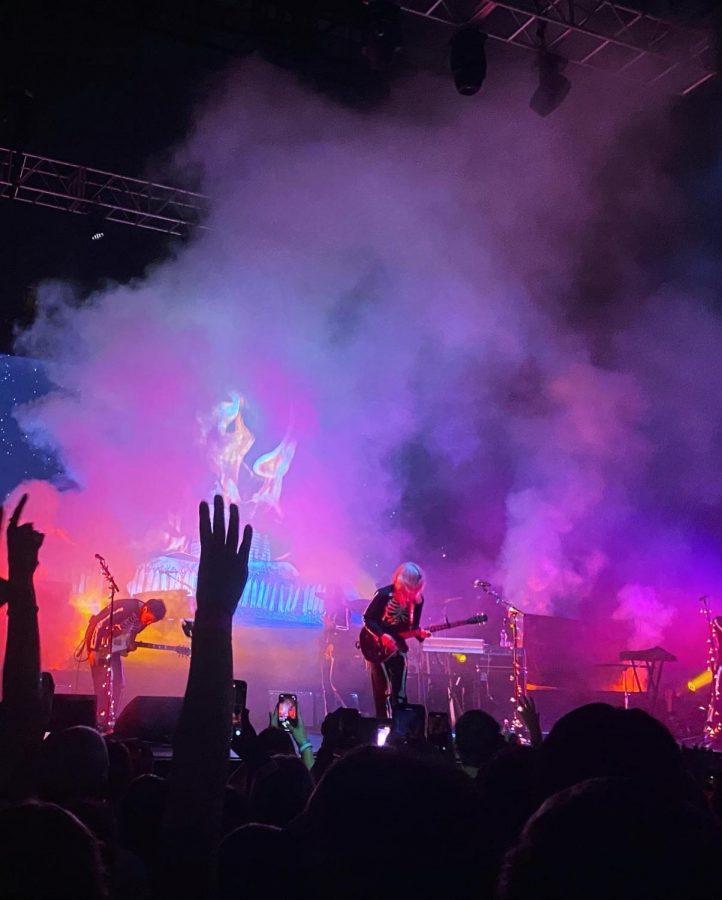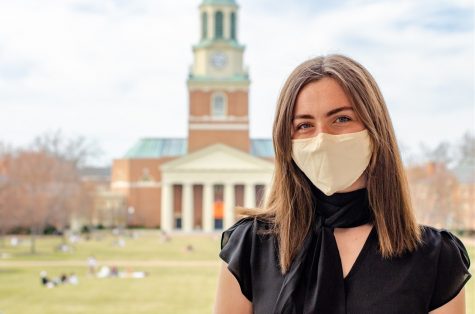Concert prompts introspective thinking
How a simple performance highlighted the true power great music holds
September 23, 2021
Tuesday was the start of fall. It was also rainy and my ex-boyfriend’s birthday. What better way to celebrate all of the different emotions the day induced than by attending a Phoebe Bridgers concert?
I would like to make it clear that Phoebe Bridgers is one of my favorite musical artists to ever grace the face of the planet. She has a clear, light and captivating voice that narrates the beautiful lyrics that she writes with ease. I also want to make clear that, six minutes into writing, this is going to be less of a concert review than it is a commentary on how your favorite artist can define major moments in your life. Now, let’s get into it.
Tuesday night was the first time I ever saw Bridgers in concert, though I am no stranger to her work. I remember when her first album, “Stranger in the Alps”, came out in 2017. I was a junior in high school and listened to her minimalistic songs like “Chelsea”, “Georgia”, “Funeral” and “Scott Street” on repeat until the sound of an acoustic guitar made me ill.
Though I longed to, I never had the chance to see Bridgers back then. Her sophomore album, “Punisher” came out on June 17, 2020. I remember the date better than some of my friends’ birthdays because waiting for this album was one of the only tangible things that got me through quarantine. Scoring an 8.7 on Pitchfork, the album’s songs are candid, raw and powerful. And the crowd at Bridgers’ show on Tuesday night suggests that I am not the only one who thinks so.
But this article is not an album review, an event story or a musical manifesto — it’s a reflection on the powerful role that music plays in our lives.
As I stood in the pit at Raleigh’s Red Hat Amphitheater, craning my neck for a better view, I had an epiphany about the role music plays in my life.
I realized that the power music holds comes from something deeper than the artist delivering the lyrics. Yes, that sounds pretentious and I already hate myself for saying it, but it’s true.
I say that because I prepped this idea in my head that I would bawl when Bridgers took the stage. After all, she has been my favorite artist for nearly half a decade. But, when I laid eyes on her, nothing.
Yes, I was incredibly excited. Yes, I was physically incapable of wiping a smile off my face — but there were no tears. No “a-ha” moment occurred in which my soul opened and I began sobbing because I finally felt fulfilled.
I was perplexed. Wasn’t this performance supposed to be the most formative moment of my concert-going experiences thus far? Why was I not feeling the urge to scream, to cry? I was … happy. Content, even.
If you are a fan of Bridgers, you can understand why this is not exactly normal. Before going to the concert, I even made a joke about pre-gaming for the concert by “microdosing depression” (AKA not taking my Zoloft). But, here I was, standing in the rain, listening to Bridgers sing softly about atheism, failed relationships and mental illness. And I was happy.
Then, the real epiphany came: artists are simply a vessel for their music. It is the lyrics and feelings and memories they elicit that give songs and artists their importance.
As I enjoyed the rest of Bridgers’ set, screaming along and dancing when appropriate, I allowed myself to slip into a nostalgic mindset. When she played “Funeral”, I viewed myself as a high school senior, blasting the song in my little Ford Fusion and crying along about problems I no longer remember. When she sang “Moon Song”, I watched myself sitting on the floor of my bedroom, grateful for a relationship I am no longer in.
When mapped out on a timeline, my life naturally has a soundtrack to match it. Tuesday night was a formative night, just not in the way I expected it. Rather than walking away after a cathartic cry, I walked away feeling more full and appreciative of how far I have come with music narrating my way.















